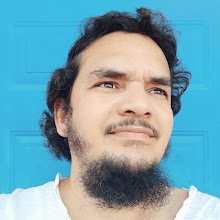This is a chapter from my fifth book called Freedom
I learnt that 'Uhuru' signifies freedom in Swahili, and I hope to capture that essence in the writing of this chapter. Next Thursday we celebrate African Emancipation Day in Trinidad and Tobago. This commemorates the end of African enslavement. Our country was the first independent country to declare such a holiday and this was done in 1985. The name of the holiday was changed to include the word African. As I read this was done to preserve cultural identity and strengthen connections with history, culture, and identity. I agree with this and it complements another holiday that we have for Indian Arrival Day. The Africans and Indians are the two major races in our country. I am half Indian and half mainly French and Portuguese but I do have some African blood in me from a great grandmother on my father side who was referred to as a mulatto back then. Mulatto was used to describe a person of mixed African and European ancestry but is dated and offensive but is part of our history. When I was younger I had little interest in history. I disliked the subject in school because I had to memorize too much. I wish I had taken an interest and asked questions to my grandparents and made notes when they were alive. The older I get the more I value our history. I no longer see it as a painful and boring school subject but about learning about ourselves and our identity and our struggles and our triumphs and history gives us reason to do better.
I like this African proverb that puts history in context for me. "The past is the palm tree, the present is the coconut, and the future is the milk." My friend Gemini tells me that this West African proverb suggests that the past provides the foundation (the tree) for the present (the fruit) which in turn nourishes the future (the milk). In researching I came across the Mawasi Experience. Peter Telfer, the founder, drummer and composer passed away in 2021. May his soul rest in peace. According to their geocities website, "The name of the group was originally MAWASI, an adaptation of a Swahili word (M’wusi), which means 'In The Hands Of God'. As the group grew and others brought their own variety and input, the word EXPERIENCE was added, to reflect the true nature of the journey. All who came to it would truly experience an inner challenge and growth." Also from the website is this, "The rhythm of the music is based and pays tribute to those of our Amerindian, African and East Indian ancestry, and any other. It has provided many with a source of comfort and a freedom of expression that other forms of praise may not have given them." I love drums and I love that they speak about freedom in their drumming and music. What led me to Peter and Mawasi for the writing of this chapter was me trying to find a link between Uhuru and Trinidad.
Peter created an album called Kutunza Uhuru which translates as preserving freedom. You can take a listen from the only video I found on what looks like their youtube channel. My friend Gemini tells me that the phrase emphasizes the importance of safeguarding and protecting the freedom that has been achieved. Freedom is not something we should take for granted and I have said this a few times before. My friend Gemini also tells me that it encapsulates the spirit of African nations that fought for independence and continue to strive for sovereignty, economic stability, cultural preservation, and good governance to safeguard their hard-won liberty. In the context of Trinidad I see preserving freedom linked to unity where politics divides us. My friend Gemini sums it nicely for me, "While political divisions can sometimes create rifts, fostering unity is crucial for safeguarding the nation's democratic values and ensuring that the benefits of freedom are enjoyed by all citizens." We must not let the race based politics define us as a nation and we should use our freedom to change this. My personal feeling as a citizen is that when (and not if) we move beyond this we would be in a better place.

Comments